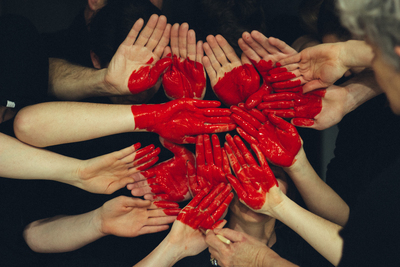This is opposed to modern liberal thinking, which is the negation of liberty of the individual and imposition of the will of society.
Socialist mentality has introduced a whole host of additional positive rights which assume that society owes everyone a minimum standard of living and access to a full slate of services. Those additional rights deserve a closer look to see if they are truly universal and unalienable. If two people exist on a desert island, both have rights, just as they do in an advanced industrial society. Neither has the right to injure or kill the other person, to enslave him or her or to take property that he or she acquired legitimately through his or her own efforts. These are the basic rules for all human cooperation and for societies based on true justice. It is legitimate to engage in voluntary trade that benefits both parties, but it is not legitimate to use force or coercion to get a benefit at the expense of the other person. Does either person have a right to food, water or shelter They do have a right to use their resources, their skills and strength to provide for their own needs, but neither has the right to have the other provide for them. Can person A legitimately force person B to give him medical care Even if B was a doctor, the only way that A can enforce a right to any level of health care is to violate the rights of B. Thus, that positive right to health care is a spurious and illegitimate claim. In any society, however, whether made up of two people or billions of people, all parties are better off if they cooperate. B can provide medical services, but A can provide other valuable services, and they will both benefit if they give each other value for value they get. They can each concentrate on the things they do best and depend on the other to provide for other things. In the event that A becomes disabled and cannot provide any value to the relationship, does A now have a right to the services of B The answer is unequivocally no. There is no right to violate the rights of others just because one cannot provide for oneself. That does not mean that that B should let A perish just because A has no right to B’s help. Charity and compassion are also important parts of the human condition, religion, tradition and ethics, and it is considered good for B to help A in time of need. The Good Samaritan is a famous and useful analogy that illustrates true charity. It highlights voluntary aid to others, using one’s own resources. It has nothing to do with A having a right to B’s property or service, but only demonstrates the good will of one person for another. In a larger society, the rights of the individuals hold the same significance. The fact that advanced medical services are available on a wide scale does not mean that any individual has a right to any level of health care. Medicine is merely a valuable service that people provide. Voluntary cooperation is the essential characteristic of any free society, but no medical person owes anyone else medical service. It is based on mutual agreement about value given and value provided. There are many charitable organizations and millions of charitable people who are willing to give of their time and their resources for the benefit of others. It is fitting and proper that they do that. It is not fitting and proper for organizations or individuals to use the force of the state to coerce others to do charity. Using the government to take money from others for enforced charity is still aggression against the rights of others. It is counterproductive and displaces true charity with violence.
You often pay slightly more for a fixed rate mortgage, but then you do have added security.
The Right To Health Care 2009: Opposed Modern
The Right To Health Care

